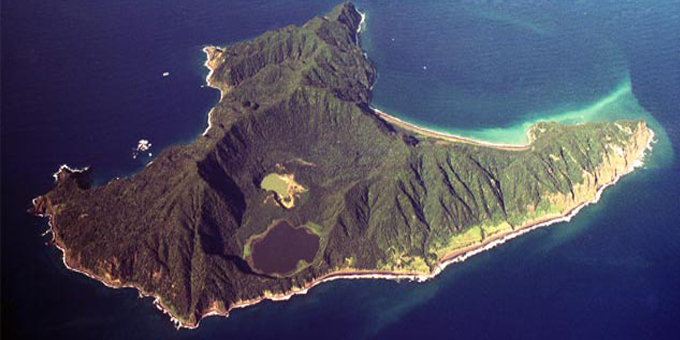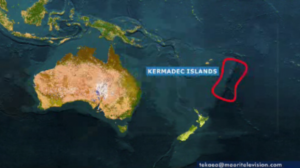
In this day and age of natural exploitation it comes as a breath of fresh air when the New Zealand government proposes that the Kermadec region become a sanctuary free of fishing and mining. But what is nature’s gain and a good precedent for other countries to follow, is loss for Maori it seems. Once again we see the selfishness of some Maori who are only interested in their own commercial gain even at the expense of the rest of New Zealand and in this case the whole world.
The Kermadec Islands and Maritime boundary contain some of the most pristine marine environments on planet Earth. There is a huge variety of fish species and other wildlife including: whales, dolphins, sharks, birds, turtles, and coral. There are also lifeforms that do not need sunlight and thrive on hydro-thermal vents. It is also possible that there are thousands of undiscovered species here. Located about 1000 km northeast of the North Island, the islands stretch for 250km which are really five emergent peaks of undersea volcanoes and some smaller islets. Within this proposed sanctuary is the Kermadec-Tonga Trench the second deepest trench on the planet at about 10,882 metres (35,702 ft) deep. The protected area will comprise a whopping 620,000 square kilometres.
 But New Zealand’s environmental goodwill is opposed by Maori interests once again. Only this year did New Zealand citizens contribute money to buy back a private beach inside Abel Tasman National Park to make it part of the park for all to enjoy and to preserve. Local Maori opposed this too and rightfully lost. They seem only interested in commercial gain and at any price. Thankfully on the Kermadec Ocean Sanctuary, the New Zealand government seems resolute and are not bending toward the will of these Maori opportunists. The Māori Fisheries Trust say it is a Treaty of Waitangi issue and they say the treaty gives iwi fishing rights in this area. Prime Minister John Key said:
But New Zealand’s environmental goodwill is opposed by Maori interests once again. Only this year did New Zealand citizens contribute money to buy back a private beach inside Abel Tasman National Park to make it part of the park for all to enjoy and to preserve. Local Maori opposed this too and rightfully lost. They seem only interested in commercial gain and at any price. Thankfully on the Kermadec Ocean Sanctuary, the New Zealand government seems resolute and are not bending toward the will of these Maori opportunists. The Māori Fisheries Trust say it is a Treaty of Waitangi issue and they say the treaty gives iwi fishing rights in this area. Prime Minister John Key said:
“At the core of their belief, they believe they should be entitled to fish there even though they haven’t; they believe they should. We believe it should be a sanctuary where they shouldn’t fish.
The Government believes that Maori will still be able to catch fish here however, because the fish are mostly migratory and can be caught outside this boundary. This admission shows that the sanctuary would help fishing outside this zone because it gives them a chance to recover from over-fishing in other areas. There doesn’t seem to be any excuse or good reason to give Maori exclusive rights to this area.

